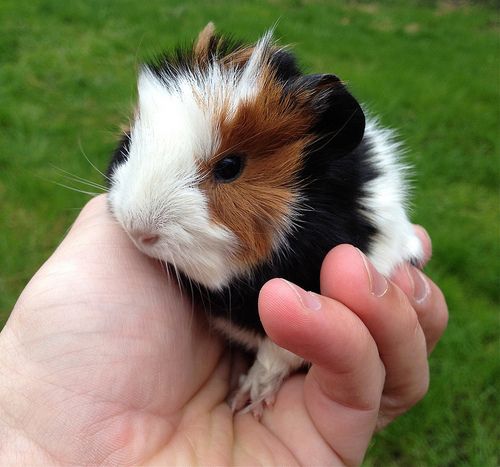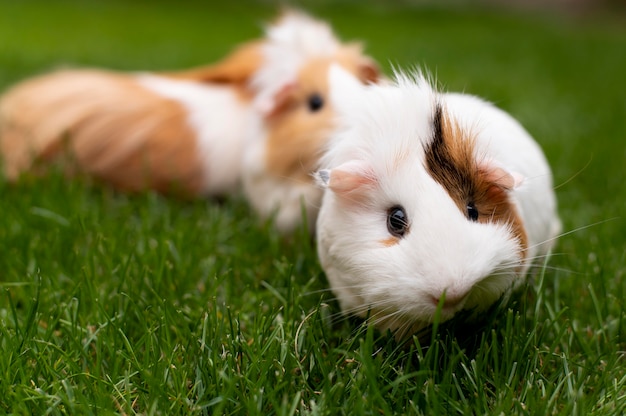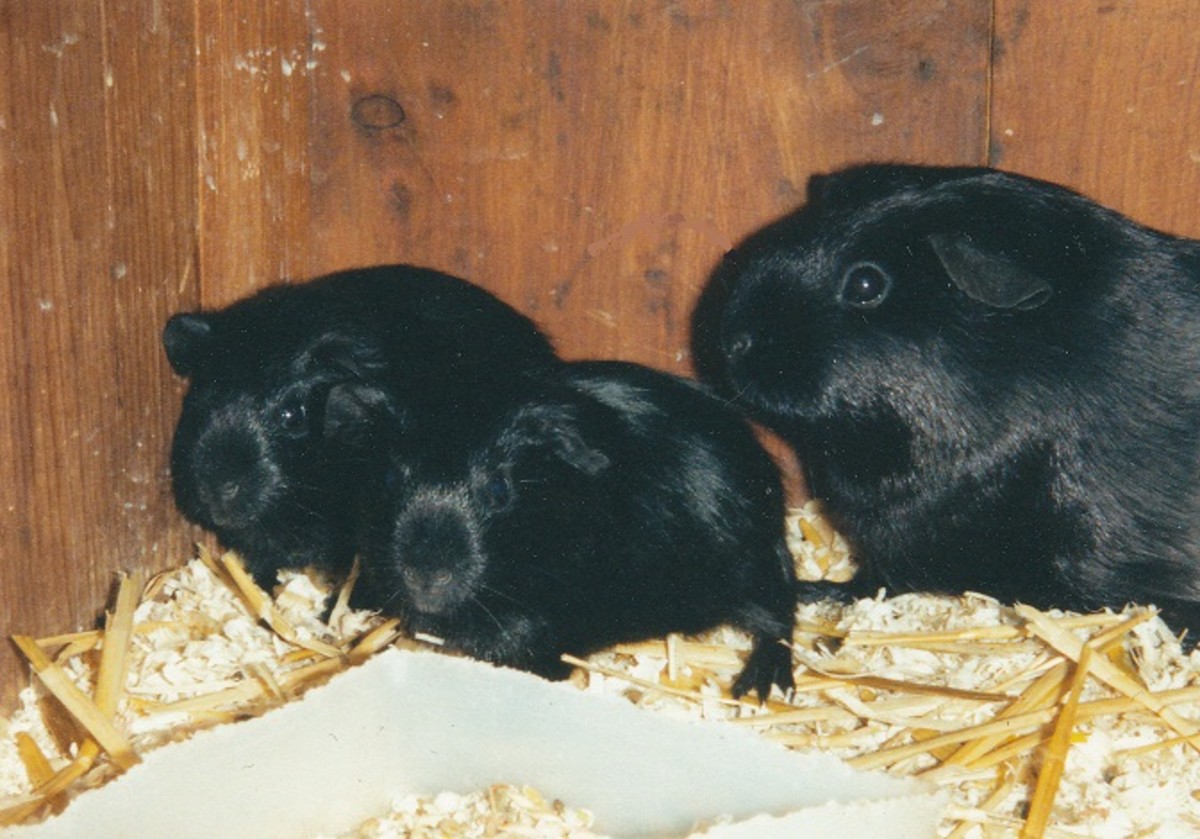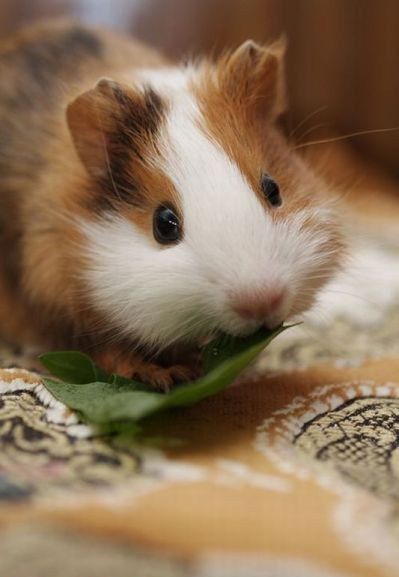Health & Care
Raising Guinea Pig Babies Tips and Tricks for First-Time Owners
As a first-time owner of guinea pig babies, you may feel excited but also a little overwhelmed. These tiny creatures are full of energy and personality, but they also require special care and attention to ensure their well-being. In this article, we will cover everything you need to know about raising guinea pig babies, from preparing for their arrival to ensuring their health and happiness.
Seemore: Can Guinea Pigs Eat Zucchini? – Health Benefits And Drawbacks
Contents
Preparing for Your Guinea Pig Babies

Before bringing home your new furry friends, it’s essential to have all the necessary supplies and set up their living space properly. This section will guide you through the process of getting ready for your guinea pig babies.
Supplies You Will Need
Here are the essential supplies you will need before your guinea pig babies arrive:
- A cage: Guinea pigs need plenty of space to move around, so be sure to get a cage that is at least 7.5 square feet for two guinea pigs.
- Bedding: Choose a bedding material that is soft and absorbent, such as fleece or paper-based bedding.
- Food and water bowls: Look for heavy, ceramic or metal bowls that your guinea pigs won’t be able to tip over.
- Hay and pellets: Guinea pigs need unlimited access to hay, which should make up the majority of their diet. Pellets can be given in moderation as a supplement.
- Vegetables and fruits: Fresh vegetables and fruits should make up about 10-15% of your guinea pigs’ daily diet.
- Toys and hideouts: Guinea pigs love to play and explore, so provide them with plenty of toys and hiding places to keep them entertained.
Setting Up Their Living Space
Guinea pigs are social animals and should always be kept in pairs or groups. When setting up their cage, make sure to provide enough space for each guinea pig to have their own territory. Here are some tips for setting up their living space:
- Line the bottom of the cage with a layer of bedding, at least one inch thick.
- Place food and water bowls in separate corners of the cage.
- Provide plenty of hiding places, such as tunnels or igloos, for your guinea pigs to feel safe.
- Add chew toys and other interactive toys to keep them entertained.
- Place a hay rack in the cage so your guinea pigs can access hay easily.
- Make sure the cage is located in a quiet area with proper ventilation and away from direct sunlight.
Feeding Your Guinea Pig Babies

Proper nutrition is crucial for the health and growth of your guinea pig babies. In this section, we will discuss what to feed your guinea pigs and how much to feed them.
What to Feed
The majority of your guinea pigs’ diet should consist of hay, which provides essential fiber for their digestive system. Timothy hay is the best option for adult guinea pigs, while alfalfa hay is suitable for babies and pregnant or nursing sows. Pellets should be given in moderation, as they can contribute to weight gain and other health issues. Fresh vegetables and fruits, such as bell peppers, carrots, and apples, should be given daily in small amounts as a supplement to their diet.
How Much to Feed
Guinea pigs should have access to unlimited hay throughout the day. For pellets, give about 1/8 cup per day for every two guinea pigs. Vegetables and fruits should make up about 10-15% of their daily diet, with each serving being about the size of their head. It’s essential to monitor your guinea pigs’ weight and adjust their diet accordingly to prevent obesity and other health problems.
Handling and Bonding with Your Guinea Pig Babies

Bonding with your guinea pig babies is a crucial part of their socialization and development. Here are some tips for handling and bonding with your new furry friends.
Handling
When picking up your guinea pig, be sure to support their entire body with both hands. Avoid grabbing them by the scruff, as this can cause discomfort and injury. If your guinea pigs seem scared or resistant to being picked up, try using a cuddle sack or towel to scoop them up gently.
Bonding
Bonding with your guinea pigs takes time and patience. Start by spending time near their cage, talking to them and offering them treats. Once they seem comfortable with your presence, you can begin to handle them more frequently. Remember to always be gentle and speak in a soothing voice to help them feel safe and secure.
Common Health Issues in Guinea Pig Babies
While overall, guinea pigs are hardy animals, they are still susceptible to certain health issues. As a responsible owner, it’s essential to be aware of these potential problems and know how to prevent and treat them.
Digestive Problems
Guinea pigs have sensitive digestive systems, and any changes in their diet can lead to digestive issues such as diarrhea or bloat. To prevent these problems, introduce new foods gradually, and make sure to provide unlimited access to hay and fresh water.
Respiratory Infections
Guinea pigs can easily develop respiratory infections due to their small airways. These infections can be caused by poor ventilation, drafts, or dusty bedding. To prevent respiratory issues, keep their living space clean and well-ventilated, and use dust-free bedding.
Parasites
External parasites, such as mites and lice, can infest your guinea pig’s fur and cause discomfort and irritation. Regular grooming and keeping their living space clean can help prevent these pesky critters. If you suspect your guinea pig has parasites, consult your veterinarian for proper treatment.
FAQs about Guinea Pig Babies

Q: How soon can I handle my guinea pig babies after they are born?
A: It’s best to wait until they are at least two weeks old before handling them. This gives them time to bond with their mother and develop their immune system.
Q: Can guinea pigs be kept with other animals?
A: No, it’s not recommended to keep guinea pigs with other animals, as they can easily get stressed and become aggressive toward each other. They should only be housed with other guinea pigs.
Q: Can I bathe my guinea pig babies?
A: No, guinea pigs do not need to be bathed unless they have a skin condition or get extremely dirty. If you must bathe them, use a mild shampoo specifically designed for small animals and make sure to dry them thoroughly afterward.
Q: How often should I clean their cage?
A: It’s recommended to spot clean daily and do a full cage cleaning once a week. However, if you have more than two guinea pigs, you may need to clean more frequently.
Q: How can I tell if my guinea pig is sick?
A: Signs of illness in guinea pigs include decreased appetite, weight loss, lethargy, and noticeable changes in behavior. If you notice any of these signs, consult your veterinarian immediately.
Conclusion

Raising guinea pig babies can be a rewarding experience, but it also comes with its challenges. By providing the right care and attention, you can ensure that your little ones grow up healthy and happy. Remember to provide a spacious living environment, a well-balanced diet, and plenty of love and affection to keep your guinea pigs thriving. With the tips and information in this article, you’ll be well on your way to becoming a successful guinea pig parent!
